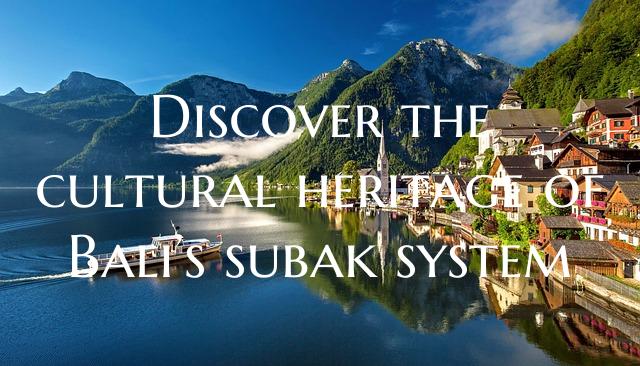
Bali's subak system represents a rich cultural heritage that has sustained the island's agricultural practices for centuries. This intricate irrigation network, recognized as a UNESCO World Heritage Site, is not just a means of watering rice terraces but a reflection of the Balinese philosophy of harmony with nature and community cooperation.
Rooted in the ancient subak irrigation system, which originated in the 9th century, Balinese farmers developed a sophisticated network of canals, tunnels, and weirs to efficiently manage water distribution across rice fields. The subak system is governed by a democratic structure where water allocation is collectively decided by the Subak, a local organization that oversees the irrigation schedules and resolves disputes among farmers.
Beyond its practical function, the subak system is deeply interwoven with Balinese spiritual beliefs and rituals. Water is revered as a life-giving force, and farmers perform ceremonies to honor the water temples located at key junctions in the irrigation network. These temples serve as nodal points for community gatherings and religious festivities, reinforcing the spiritual connection between the people, the land, and the divine.
Visitors to Bali have the opportunity to witness the subak system in action by embarking on tours of the iconic rice terraces in Ubud, Jatiluwih, or Tegallalang. By engaging with local farmers, participating in traditional planting or harvesting activities, and attending water temple ceremonies, travelers can gain a deeper appreciation for the cultural significance of the subak system and its role in shaping Bali's landscape and way of life.
In conclusion, the subak system is not just a feat of engineering but a living embodiment of Bali's cultural identity and communal values. By delving into the history and practices of the subak system, travelers can forge a deeper connection with the island's heritage and gain insight into the harmonious relationship between humans, nature, and spirituality that defines Balinese society.